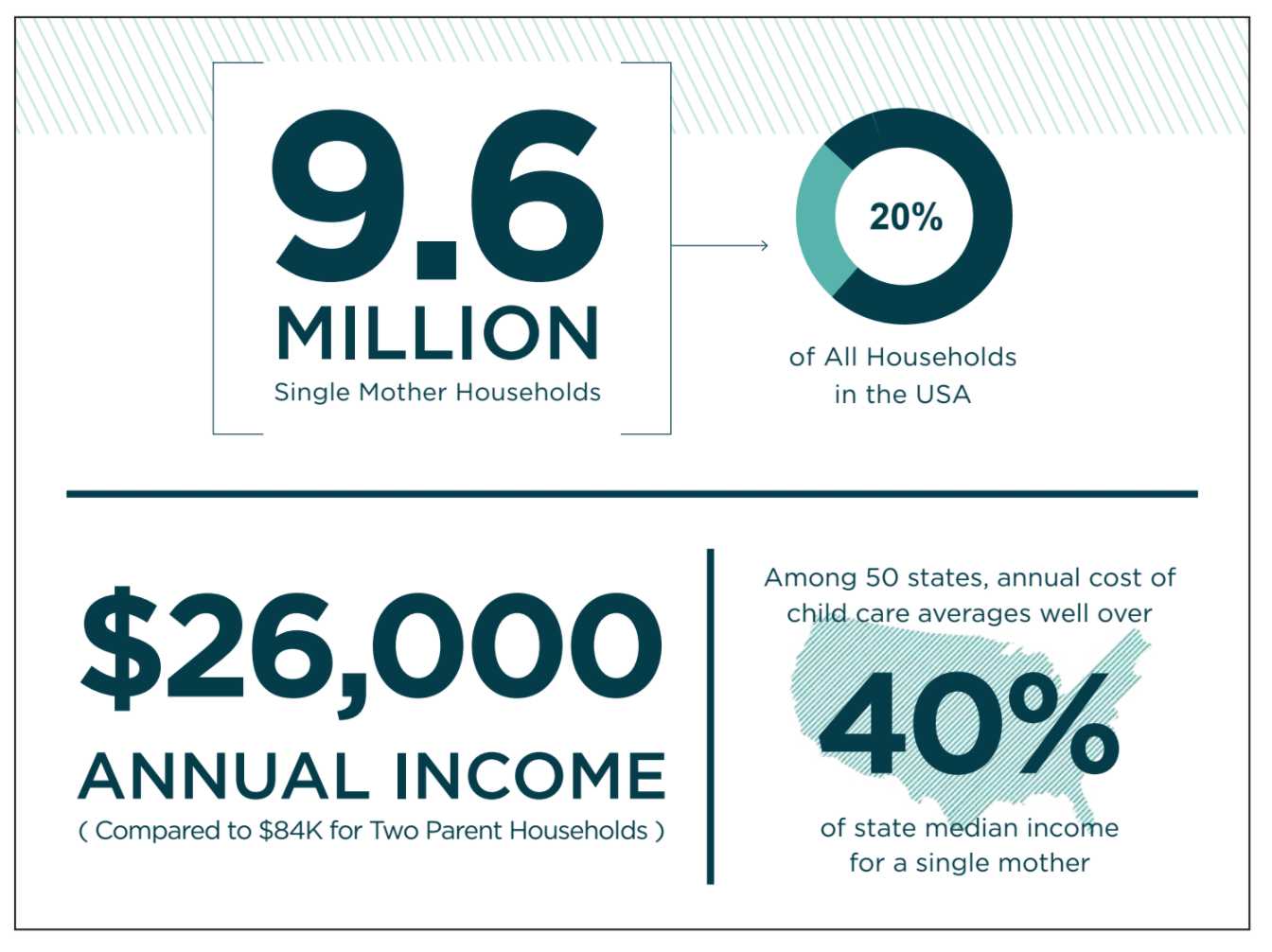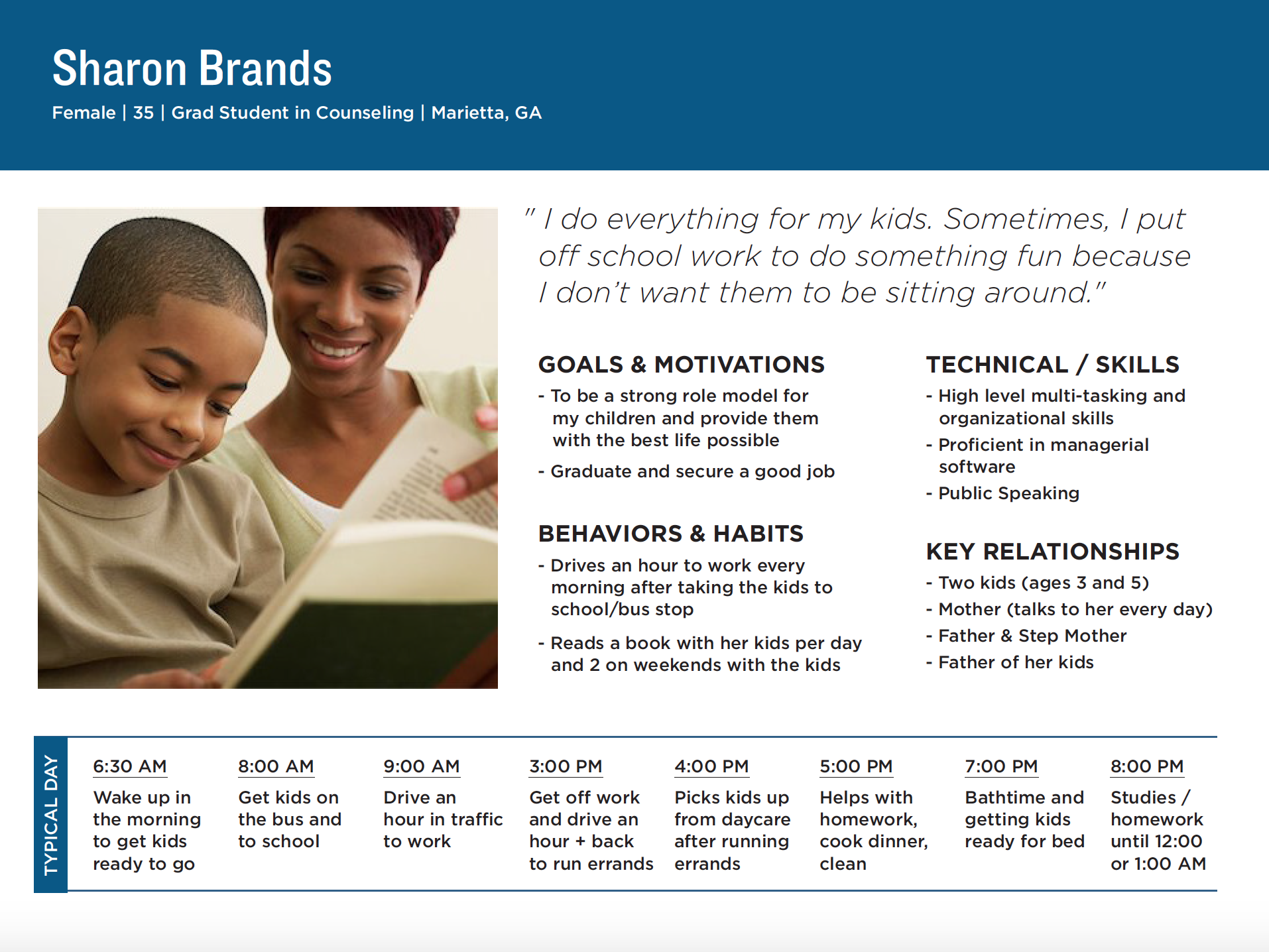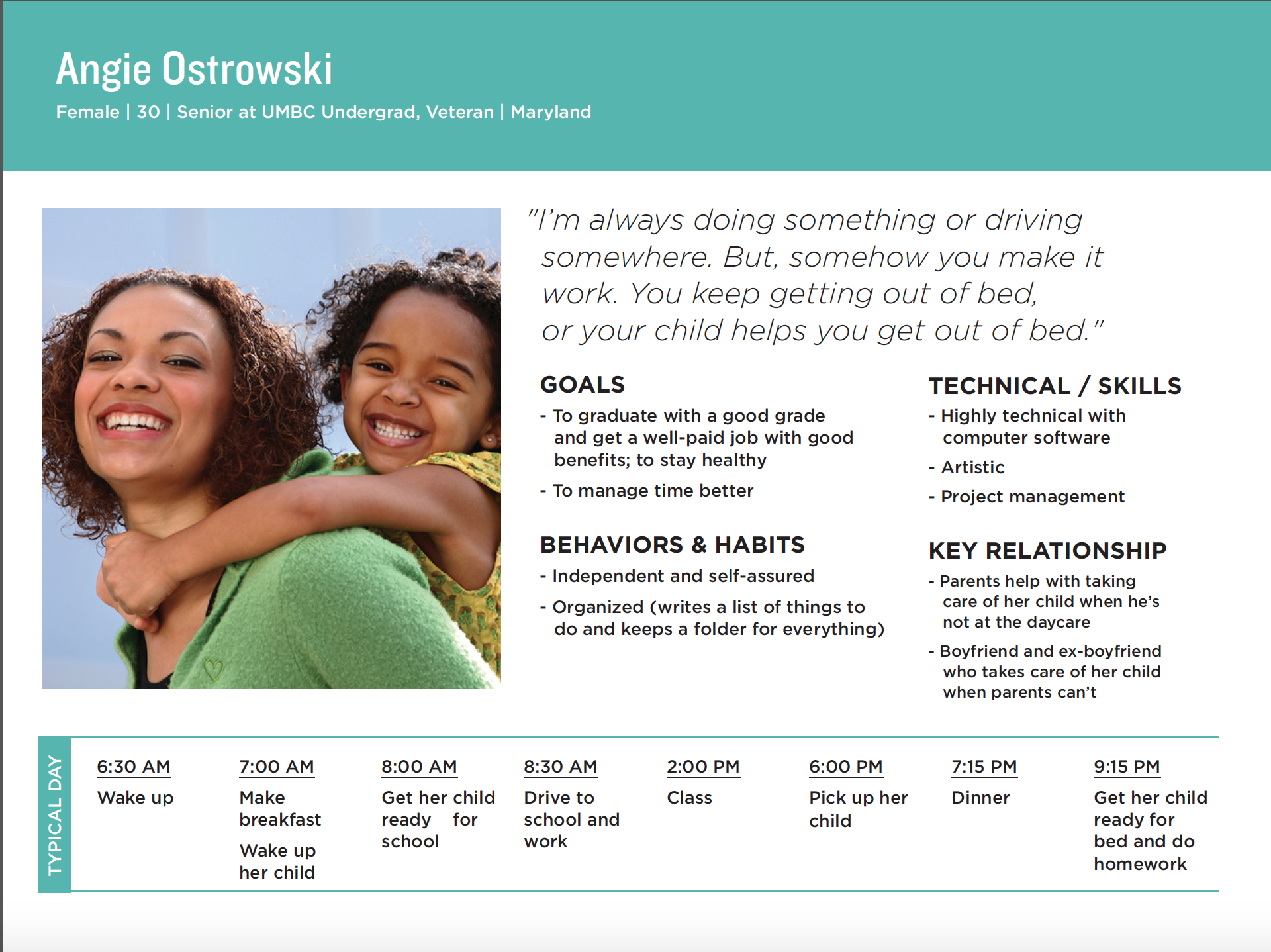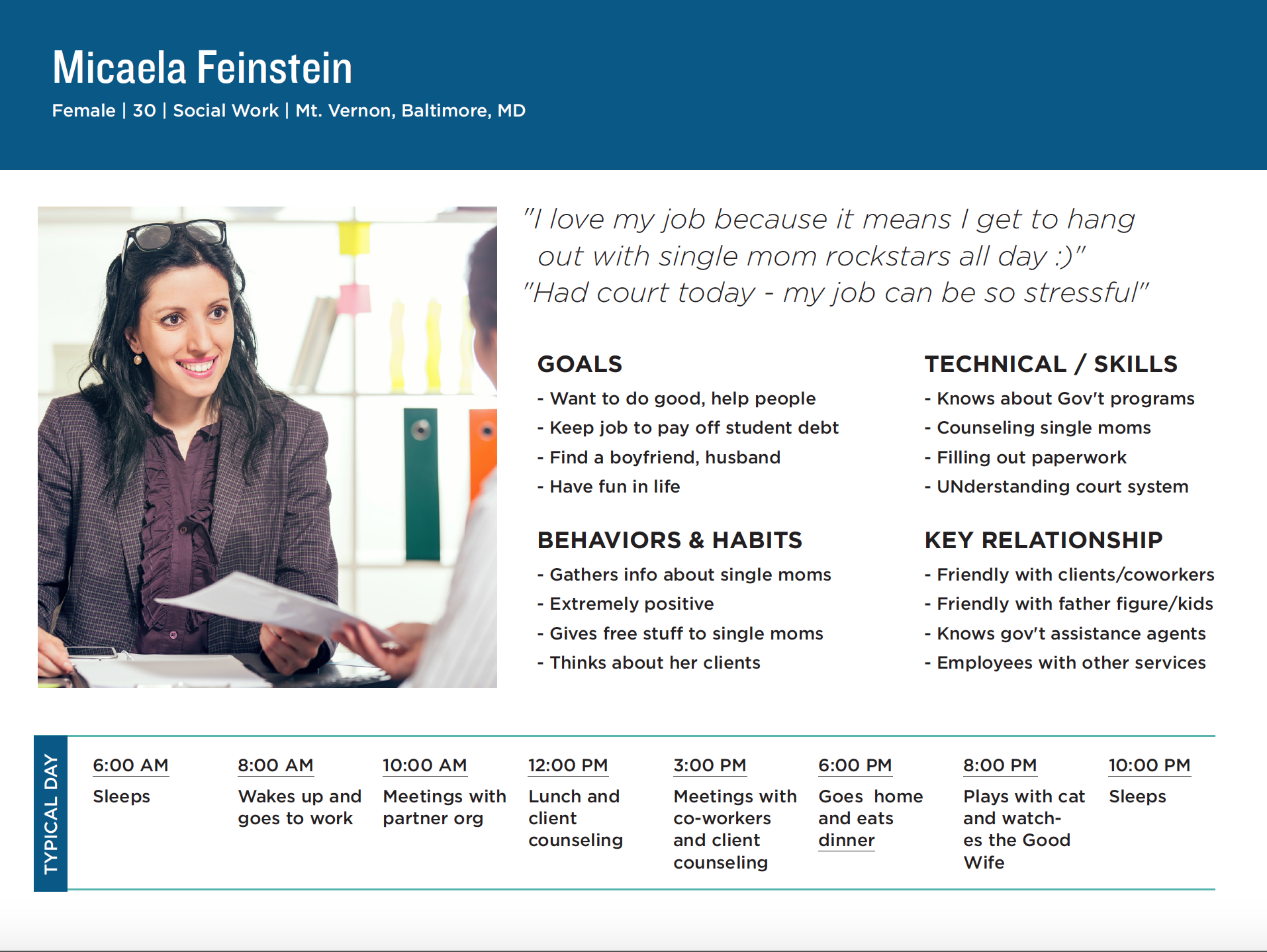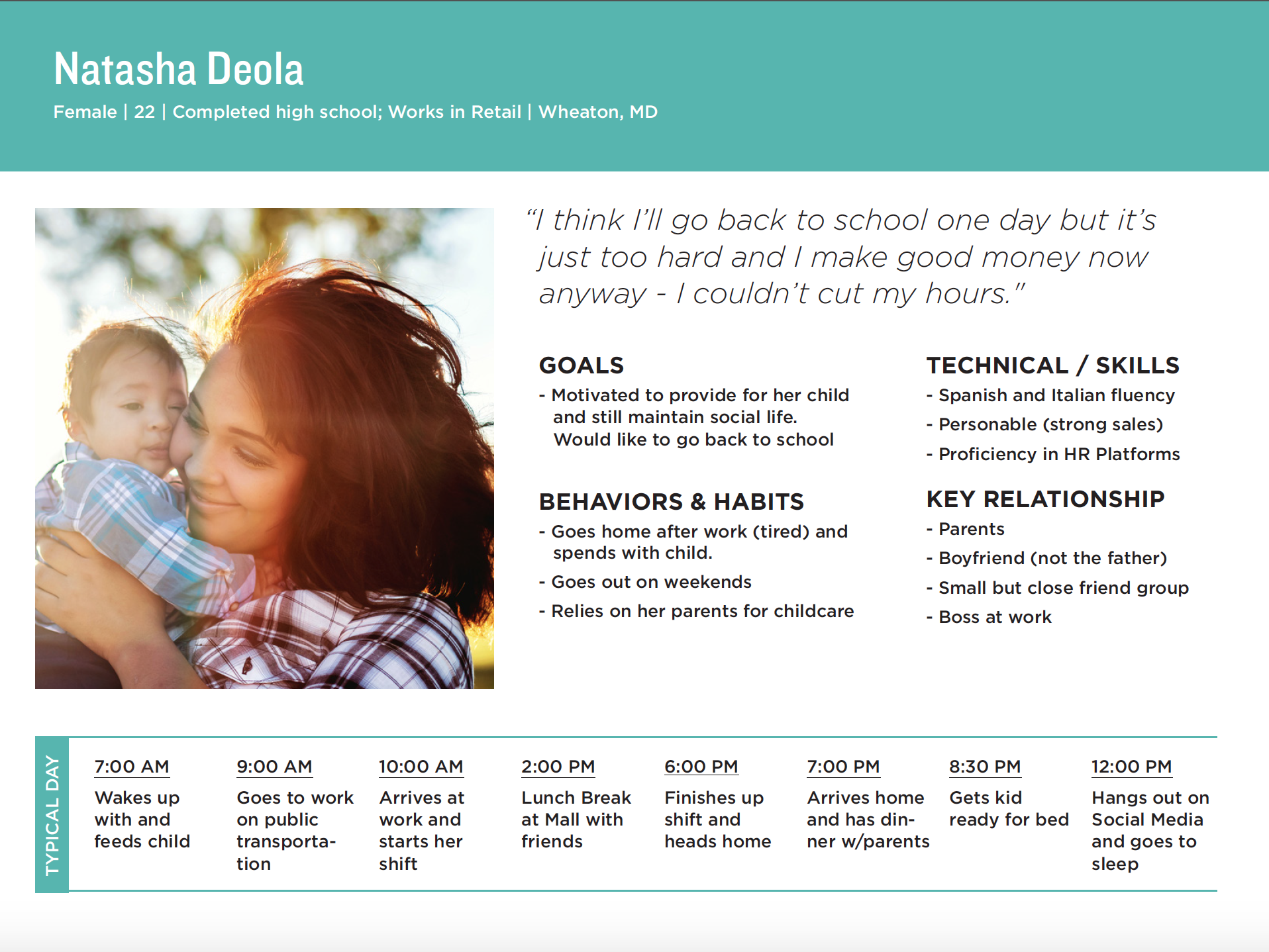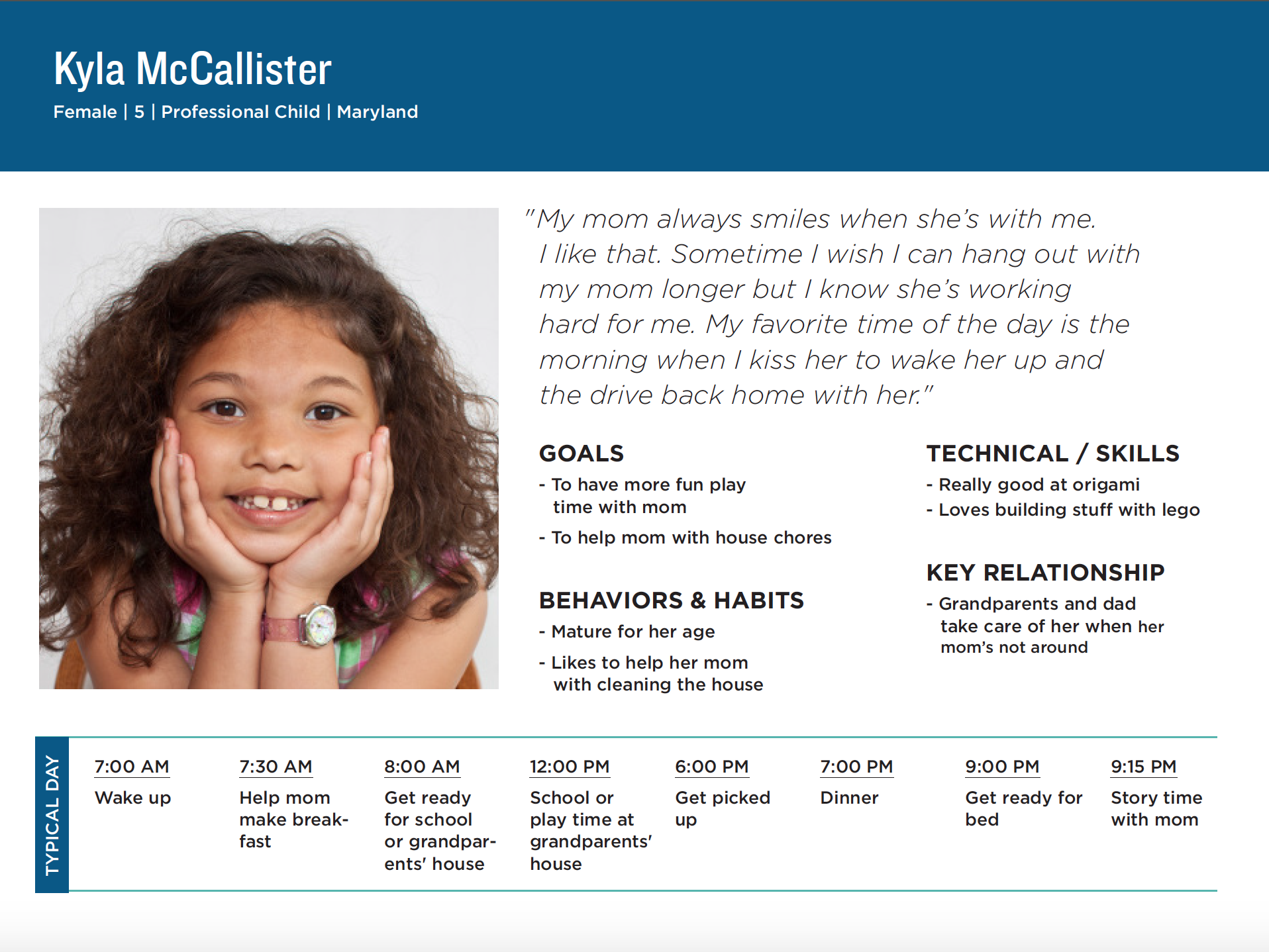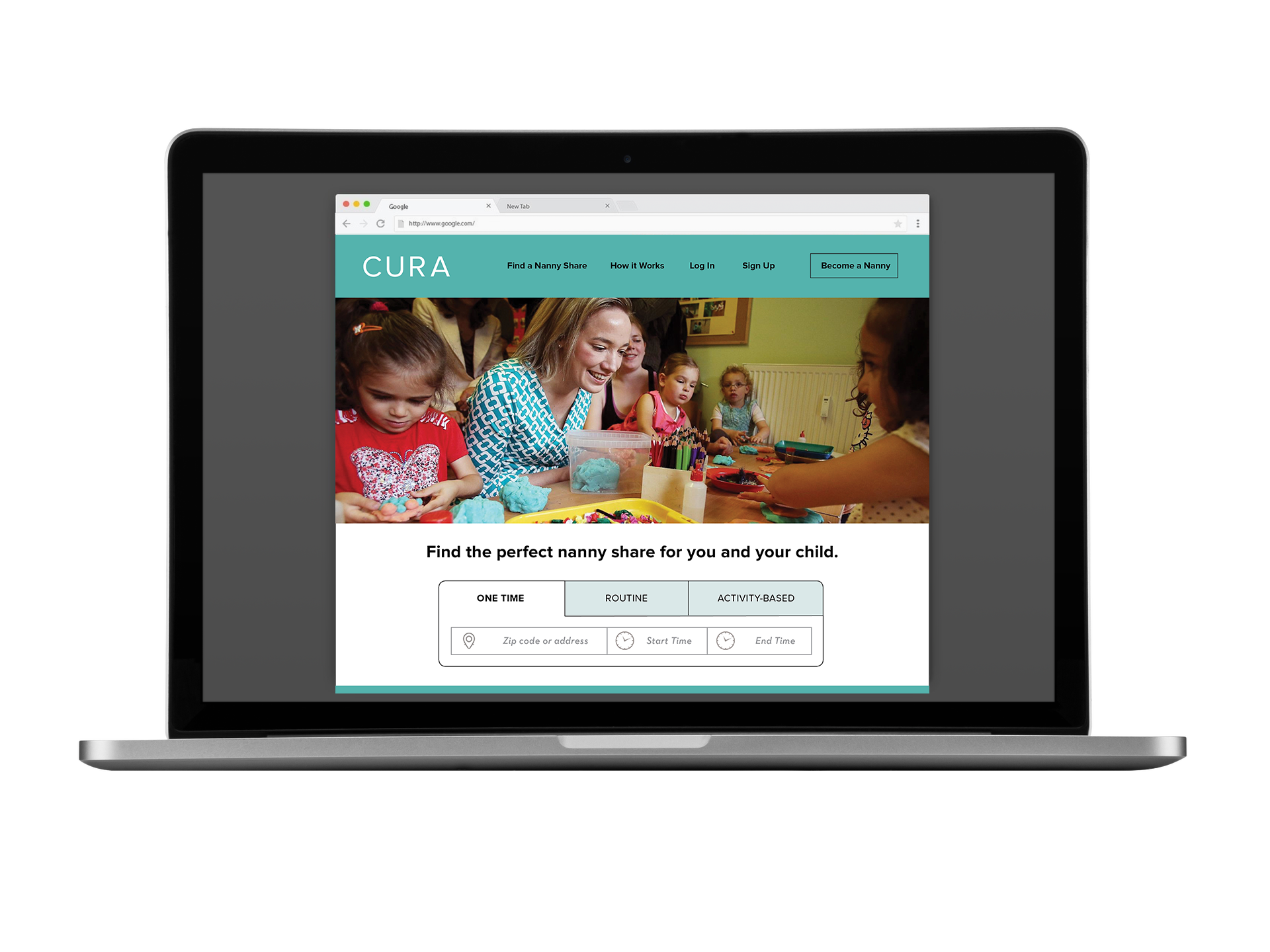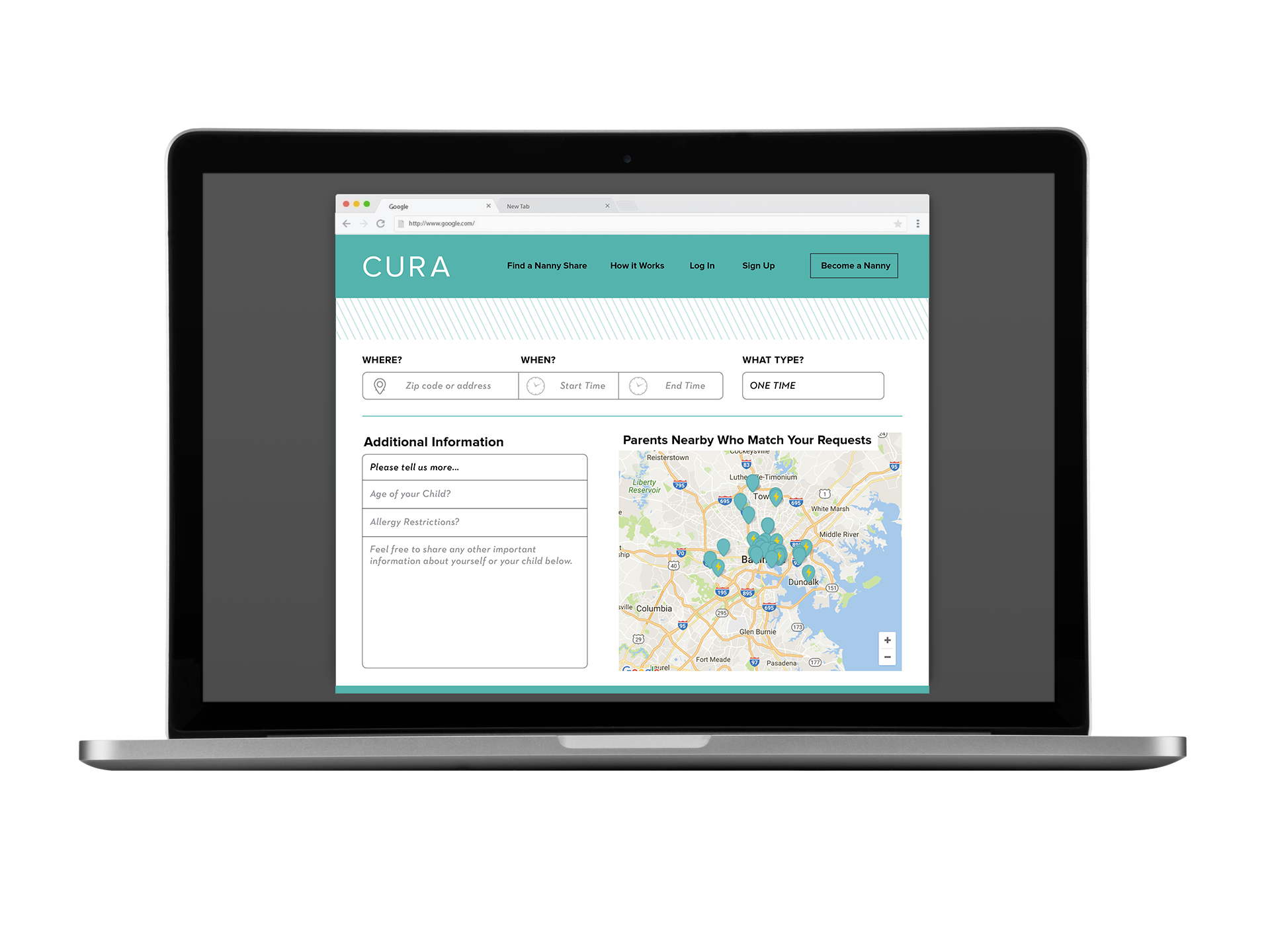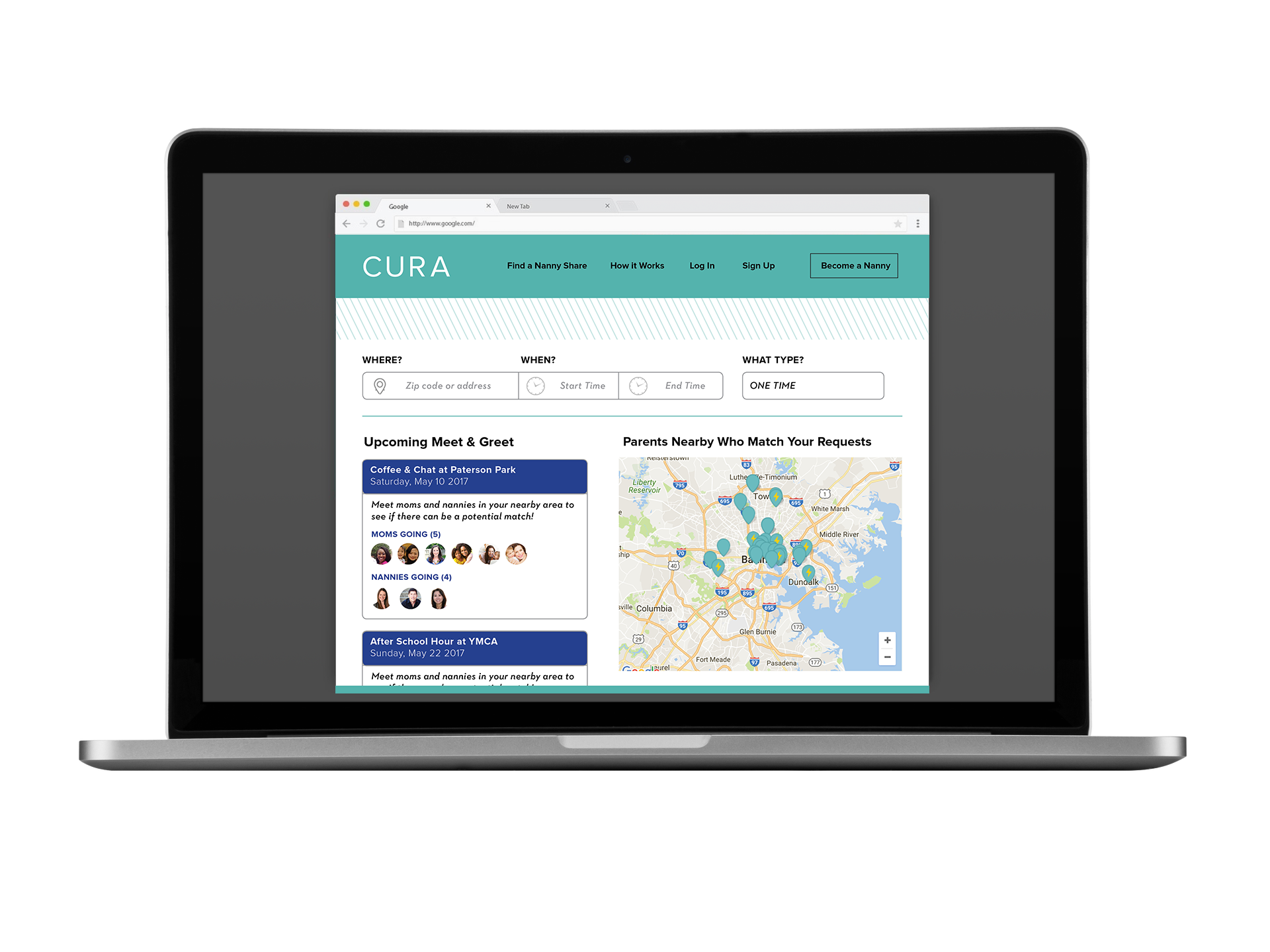Client
Academic Project
Brief
We were tasked with developing any product or service for a specific consumer or user group using human-centered design
Team
Bianca Jackson
Seul Rhee
William Solomon
Andrew Hinton
Contribution
Led the design direction, developed research plan and conducted interviews, and developed prototype
We started by conducting market analysis and a high level hypothesis in order to develop an opportunity space. After numerous sets of data and secondary research, we found that most single parents had less of a support structure and fewer resources compared to a two-parent home. The shared economy presented an opportunity to expand this network beyond traditional means
Research
We conducted ethnographic research and one-on-one phone interviews with single mothers. Through these conversations we were able to understand the motivations, goals, and pain points of these consumers. After conducting over 15 interviews, we synthesized and clustered information to uncover six common themes and insights. In addition, we developed personas to represent the various users that would potentially use our solution.
Reframe & Rapid Ideation
Through our research we uncovered themes relating to self advancement, support, stigma, childcare and activities. The first How Might We statement developed was rather broad in scope that allowed us to rapidly ideate and prototype numerous ideas.
How Might We leverage the shared economy in order to connect and build a support structure for single mothers.
A few Ideas that emerged from this HMW statement:
- Decentralized grocery share for groceries when time is tight
- Co-housing Opportunities
- An app that would use data to expose single parents to more time savings apps, benefits, and other sources based on what others around them are doing
However, after further reflection it became clear that the largest pain points we saw were around the the issue of childcare and support. Childcare, while most important, was actually the least accessible and most parents relied on and trusted the shared economy for almost every other aspect of their life. Combining this insight with the struggles surrounding childcare and the lack of support from other single parents led us to our reframed 'How Might We' statement.
How might we leverage the shared economy in order to make childcare more accessible to single parents.
Prototype
After refining the problem statement, we conducted an ideation session and emerged with 5 speculative designs and prototypes. From there we chose to further explore Cura, a shared nanny service. This service not only connects a parent with caretakers, but also helps in developing a network with other local parents by offering multiple "Meet & Greet" events in their neighborhood. During these events a parent would be able to meet with an interview a nanny, as well as meet other parents who are interested in a similar service.
Our main goal: Over time, we suspected that parents would want to join up with other single parents (or not!) in their area to split the cost of a nanny service for their children. Not only would this drastically reduce their childcare cost, it would allow them a chance to network and build a support network with other.
Test & Validate Concept with Landing Page
To test our idea, we designed a landing page MVP using Launchrock that would allow us to gather consumer interest and feedback. This landing page allowed customers to see a glimpse of our service and understand how it could be of benefit to them. Below are some quotes from feedback we received:
"I love the site. I like that you can meet the nannies and link with other families. A lot of people move around and want to connect with other families but don't have the time to socialize."
"I really like this idea, it kind of reminds me of the movie the Single Moms Club...which is a good thing! I would definitely subscribe."
If I COULD DO THIS PROJECT AGAIN...
Due to time constraints, our group chose to focus on single mothers because we knew we would have access to enough interview participants. However, the ideal situation would have been to capture a larger user group including single fathers or other caretakers.

